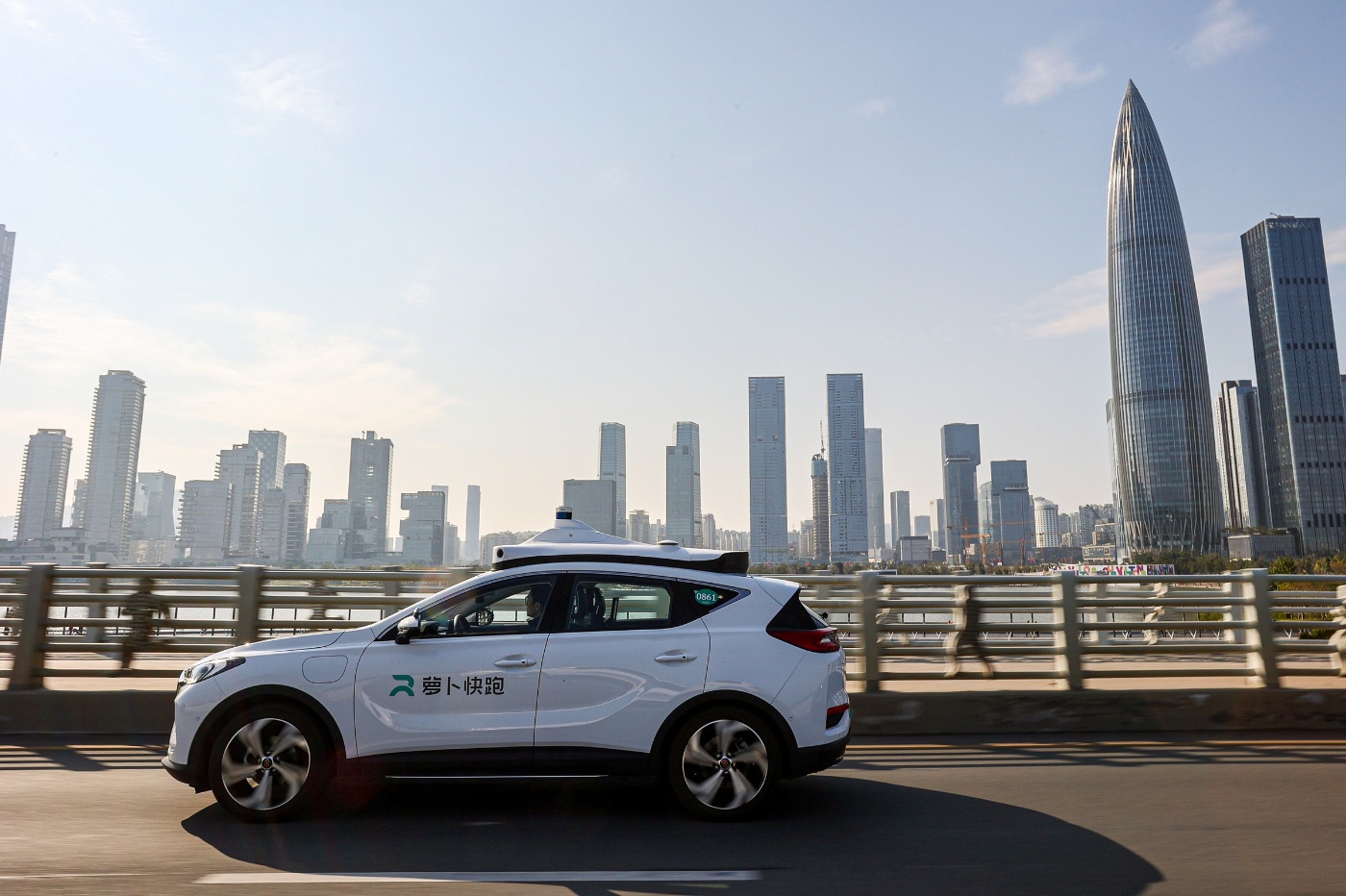
The Chinese online search giant Baidu has launched its robotaxi service in several cities and territories of the country, including Shanghai, Beijing, Guangzhou and Shenzhen.
China is taking the lead in the robotaxis sector. Waymo has launched its self-driving vehicles in select locations in Phoenix, and GM is offering its Cruise service in San Francisco (only a small portion of the city is covered). Baidu is doing much more, with the start of Apollo Go in seven major cities in China.
Cover as much territory as possible
This launch of the service allows Baidu to cover one of the most densely populated regions of southern China. Of course, this is the start of the deployment: in Shenzhen, 50 stations have been opened in a restricted geographical area, with a limited hourly frequency (between 9 a.m. and 5 p.m.). But Apollo Go will be available in 300 stations by the end of the year.
Beyond this single metropolis, which still has 13 million inhabitants, Baidu wants to be present in 65 cities by 2025, then a hundred by 2030. Currently, Apollo Go serves Beijing, Shanghai and Guangzhou , always with a limited number of stations and destinations.
Travelers are welcomed in vehicles that drive without the help of a driver, although a driver remains present behind the wheel, ready to take control of the car if needed. Each passenger in the back has their own touch screen for entertainment or information on board.
Baidu began testing its self-driving technology in Beijing in December 2019. The Apollo fleet covered nearly 520,000 kilometers before being given the green light by the authorities for a launch to the general public. However, the search engine is not alone in this niche, the competition is even fierce: AutoX was the first company to enter the Chinese market.